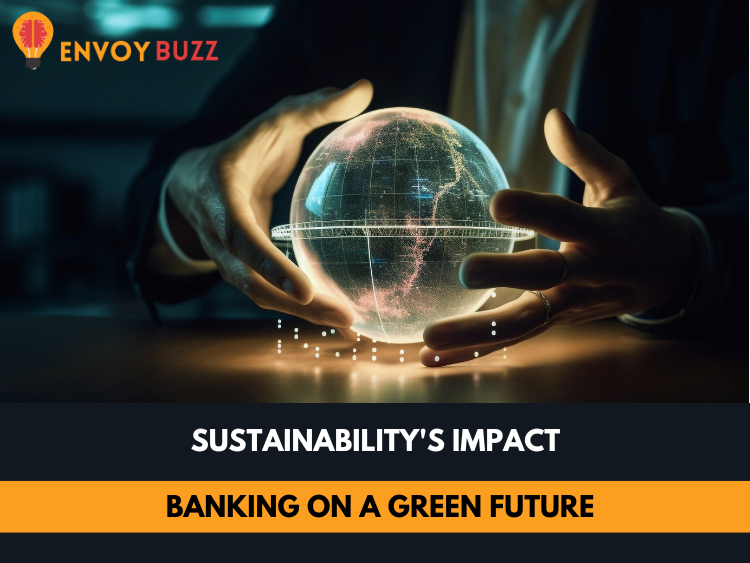In a time of changing global temperatures and geopolitical unrest, banks play a crucial role in promoting sustainability. Transparent reporting and disclosure of ESG elements is a crucial component of this endeavor as it provides the foundation for sustainable banking and boosts credibility. A strong system of accountability is established by banks that reveal their ESG performance and objectives and pledge to ethical business practices. This fosters trust among stakeholders and opens the door for sustainable development and economic resilience, which are the pinnacles of corporate responsibility.
Environmental, social, and governance (ESG) disclosures have become an essential part of bank public reporting as environmental and social factors increasingly influence investment decisions. A wide range of ESG concerns, including water consumption, human rights, diversity, ethics, sustainable financing, and governance practices, are clarified by these disclosures. Regulators from all around the world are realizing how important ESG considerations are when evaluating possibilities and hazards for financial firms.
Fostering Trust and Strengthening Risk Management: Constructing Bridges for Investors
Good ESG reporting is more than just a responsibility; it’s a proactive instrument for risk management. Banks that support open disclosure obtain important knowledge about their effects on the environment and society. Equipped with this understanding, they can anticipate and address possible ESG hazards, promoting adaptability in a constantly changing environment. Financial institutions can better position themselves in a world of extraordinary change by evaluating both risks and possibilities.
Mashreq has skillfully adopted extensive ESG reporting frameworks such as GRI, SASB, and regulatory reporting mandates like the DFM ESG guidelines. Importantly, the bank’s sustainability reporting undergoes thorough third-party verification, adhering to AA1000AS standards.
In a landscape where investors are placing growing emphasis on ESG factors when making decisions, transparent reporting becomes crucial in reinforcing investor confidence and promoting sustainable investment. As stakeholders intensify their attention on ESG considerations, banks offering comprehensive information on these factors gain a substantial competitive edge to navigate the evolving investment terrain and capture the interest and trust of investors.
This change in thinking toward sustainable investment is a symptom of a worldwide movement, not just a passing fad. Banks are leading this shift as investors look for harmony between their values and portfolios.
Thorough ESG reporting conveys to investors that banks have robust risk assessment capabilities in addition to extensive risk management plans. It also serves as an example of responsible banking practices. Our view is clear about how disclosure promotes trust and accountability: ESG disclosures are essential to responsible banking and are not only a PR stunt. For a variety of stakeholders, including investors, regulators, consumers, and others, these disclosures are essential tools. They aim to comprehend how banks contribute to sustainable value development and manage ESG risks.
Creating Impact with Tailored ESG Financial Solutions
In the dynamic realm of global finance, where economic choices can reverberate across societies and ecosystems, it is essential for banks to remain watchful. Their responsibility extends beyond profitability to a steadfast commitment to understanding the broader implications of their financing endeavors. Regional banks are progressively recognizing their pivotal role in spearheading the shift towards sustainable, low-carbon growth. This involves channeling financial resources into projects and offerings that are sustainable, climate-friendly, and financially viable.
The banking industry’s financial services and products, as well as the people, businesses, and endeavors they finance, have the biggest influence on society. As such, banks ought to give careful consideration to the collateral effects of their lending and investing activities. In order to achieve this, Mashreq is working on creating its Sustainable Financing Framework, which will make it easier to issue sustainable finance instruments—a term that refers to green, social, or sustainability instruments.
With the help of this framework, the bank is able to maintain ongoing communication with stakeholders, demonstrate its advancements in creating a sustainable portfolio, incorporate ESG standards into the lending and investment procedures, and improve the way it understands and incorporates sustainability into its overall business operations.
Sustainability-linked financing is on the rise, exemplified by Bapco Energies in collaboration with Mashreq and Gulf International Bank B.S.C., which secured the largest sustainability-linked loan (SLL) in the region. Unlike traditional loans, SLLs tie the borrower’s interest rates to specific sustainability performance indicators (SPTs) and related key performance indicators (KPIs), including reductions in carbon emissions. Successfully meeting these targets earns companies favorable interest rates, while failure results in higher rates. SLLs encourage companies to align financing and sustainability goals, driving sustainable banking practices forward.
Sustainable banking practices are becoming more and more necessary in our dynamic world, rather than just a choice. The future foundation of a sustainable banking ecosystem will be proactive risk management, transparent reporting, and responsible investing. The transformation of financial institutions across the globe will be propelled by a dedication to sustainability, accountability, and trust in their journey towards sustainable banking.
Banks can effectively lead the shift towards a more environmentally friendly and socially responsible financial landscape by adopting these principles. By taking the initiative, they not only secure their own resilience but also play a crucial part in creating a sustainable and prosperous future for everybody.
The insights shared in this blog post were graciously provided by Senior Executive Vice President and Group Head of International Banking at Mashreq.
For more news on sustainability visit Envoybuzz.

